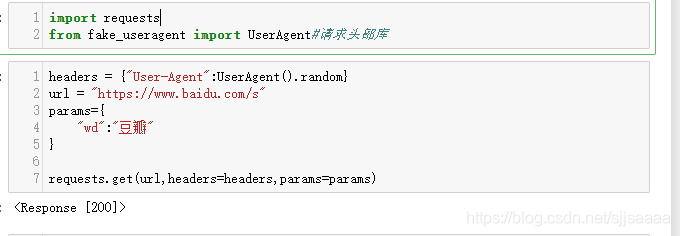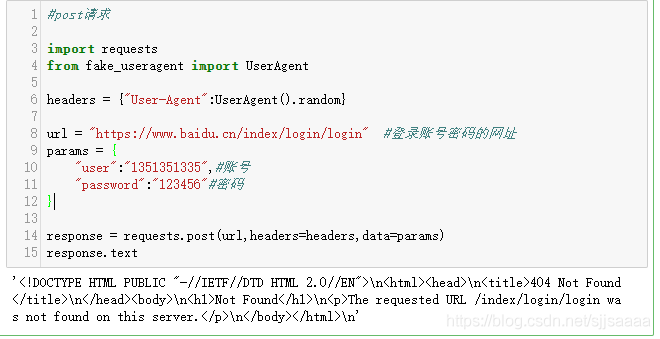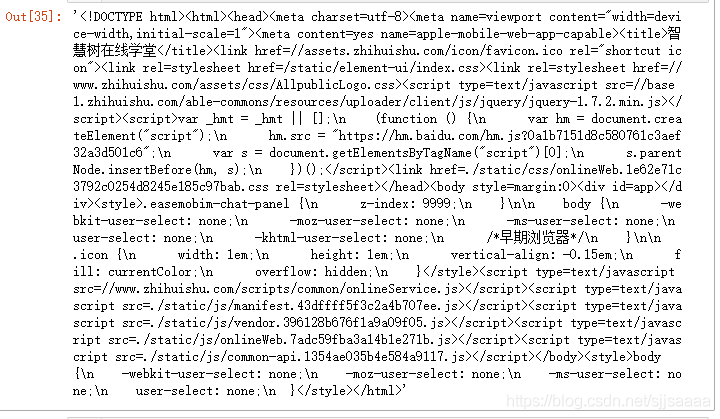- MySQL、HBase 和 Elasticsearch:特点与区别详解
一休哥助手
mysqlhbaseelasticsearch
引言随着大数据和分布式计算的快速发展,数据库系统已从传统的关系型数据库(RDBMS)扩展到多种新型数据存储技术,包括NoSQL数据库和搜索引擎等。MySQL、HBase和Elasticsearch是其中三种非常常见的数据存储系统,它们在各自的领域都有着重要的应用。MySQL作为传统的关系型数据库,HBase则是一个分布式、可扩展的NoSQL数据库,而Elasticsearch则是一个分布式的搜索引
- 有哪些常见的 Vue 错误?
涔溪
vuevue.js前端javascript
在使用Vue.js开发应用时,开发者可能会遇到各种错误。以下是一些常见的Vue错误以及如何避免它们:为了更详细地解释常见的Vue.js错误,我们可以深入探讨每个类别,并提供更多的背景信息和解决方案。以下是针对常见错误的扩展说明:1.数据响应性问题a.未声明的响应式数据问题:在Vue实例创建之后动态添加的数据属性不会自动成为响应式的。解决方案:使用Vue.set()或者this.$set()方法来添
- Vue学习笔记 二
涔溪
vuevue.js学习笔记
4、Vue基础扩展4.1插槽组件的最大特性就是复用性,而用好插槽能大大提高组件的可复用能力在Vue中插槽是很重要的存在,通过插槽,我们可以把父组件中指定的DOM作用到子组件的任意位置,后面我们坐项目用到的组件库比如element-ui,vant-ui都频繁用到的插槽,Vue的插槽主要有匿名插槽,具名插槽,作用域插槽三种,下面我们分别来认识一下他们。4.1.1匿名插槽★★★★故名思义就是没有名字的插
- js能不能清楚浏览器缓存?
涔溪
jsjavascript缓存开发语言
JavaScript本身并没有直接清除浏览器缓存的API。但是,你可以使用一些间接的方法来促使浏览器刷新缓存或在某些情况下模拟清除缓存的行为。这里有几个方法:强制刷新页面资源:可以通过为资源链接添加查询字符串的方式(如版本号或时间戳)来确保加载最新的资源,而不是缓存的版本。例如:。使用ServiceWorker:如果你正在使用ServiceWorker来管理缓存,你可以编写代码来控制哪些资源应该被
- 2024大厂高级前端面试题汇总!
前端小羽——互联网大厂
前端react.js前端框架
以下是自己整理的面试题汇总,不敢藏私,统统贡献出来。面试的公司分别是:阿里、网易、滴滴、今日头条、有赞、挖财、沪江、饿了么、携程、喜马拉雅、兑吧、微医、寺库、宝宝树、海康威视、蘑菇街、酷家乐、百分点和海风教育。以下是面试题汇总,前端进阶系列会持续深入更新面试题解,共勉!阿里使用过的koa2中间件koa-body原理介绍自己写过的中间件有没有涉及到Cluster介绍pm2master挂了的话pm2怎
- 从ErnieBotChat迁移到QianfanChatEndpoint的实践指南
fGVBSAbe
python
技术背景介绍ErnieBot是由百度开发的大型语言模型,拥有强大的中文数据处理能力。然而,由于ErnieBotChat在功能和维护上的不足,官方建议开发者切换到功能更强大的QianfanChatEndpoint。QianfanChatEndpoint在流式传输、函数调用能力等方面提供了更为先进的支持。核心原理解析QianfanChatEndpoint是百度Qianfan平台的一部分,提供了更为灵活
- 人工智能学习(一)之python入门
power-辰南
大模型算法实战工程python数据库前端
一、引言在当今的软件开发领域,面向对象编程(Object-OrientedProgramming,OOP)已经成为一种主流的编程范式。Python作为一门功能强大且简洁易读的编程语言,对面向对象编程提供了非常完善的支持。无论是开发大型项目、构建数据科学应用,还是进行自动化脚本编写,理解和掌握Python面向对象编程都能让你更高效地完成任务。本文将带你快速入门Python面向对象编程,通过清晰的概念
- javaScript 的语法糖全解
Young丶
vue3jsjavascript开发语言ecmascript
最近在阅读一些JavaScript代码时,我们发现很多时候可以用更简洁的语法来完成相同的操作,这便是“语法糖”的魅力。语法糖是一种对底层语法的封装和简化,通过编译器将其转换成等价的标准语法来实现。例如,在Java中,泛型和Lambda表达式都是语法糖。泛型在编译过程中会被转换成非泛型的形式,而Lambda表达式会被转换为对应的匿名内部类形式。语法糖的优缺点优点:简洁性:语法糖使代码更加简洁
- SD卡的驱动(linux操作系统下)
程序员小沈
linqdebianc#
emmc读写速度慢:是1线,还是4,8线,emmc和控制器本身支持的最高速率,还有dts的配置,cache(sync)是否有影响;回写,调度。s3cmci_probe->mmc_alloc_host(mmc_rescan)->mmc_add_host->mmc_start_host->queue_delayed_work(system_freezable_wq,work,delay)->mmc_r
- PDF的全能工具箱,你必不可少的办公助手
Ag大雨
pdf
PDFgear是一款集合了多种PDF处理工具的软件套装它包括PDF阅读、编辑、转换、合并和签署等功能。这款软件提供了全面的PDF处理解决方案,使用户能够轻松地完成各种与PDF文件相关的任务。功能特点多功能性:支持多种与PDF相关的操作,包括但不限于编辑、转换、合并和签署。这为用户提供了一个一站式的解决方案,可以满足各种与PDF文件处理相关的需求。文本编辑:支持编辑PDF文本,允许用户添加、替换甚至
- vue3 + [email protected]带箭头的轨迹线
小汪同学→_→
webGis-leafletvue.jsleaflet.js
import'leaflet-polylinedecorator'//箭头线(引入第三方插件)onMounted(()=>{window.customMap=mapInit.initMap({target:'map-container',coordinate:[36.09,120.35]})constdrawnItems=newL.FeatureGroup()window.customMap.ad
- 华为OD机试真题-最多获得的短信条数【2023.Q1】
IkunAlgorithm
华为OD试题库2023年java开发语言华为面试算法
题目内容某云短信厂商,为庆祝国庆,推出充值优惠活动。现在给出客户预算,和优惠售价序列,求最多可获得的短信总条数。输入描述第一行客户预算M,其中0≤M≤10^6第二行给出售价表,P1,P2,…Pn,其中1≤n≤100,Pi为充值i元获得的短信条数。1≤Pi≤1000,1≤n≤100输出描述:最多获得的短信条数示例1:输入:61020304060输出:70说明:分别充值1元和5元,可以获得10+60条
- es 3期 第22节-Bucket特殊分桶聚合实战
DavidSoCool
elasticsearchelasticsearch大数据搜索引擎
####1.Elasticsearch是数据库,不是普通的Java应用程序,传统数据库需要的硬件资源同样需要,提升性能最有效的就是升级硬件。####2.Elasticsearch是文档型数据库,不是关系型数据库,不具备严格的ACID事务特性,任何企图直接替代严格事务性场景的应用项目都会失败!!!####3.Elasticsearch原则上适合一切非事务性应用场景或能够容许一定的延迟的事务性场景;能
- HarmonyOS-面试整理
大众筹码
harmonyos面试华为
目录为什么选择HarmonyOS/优点/特点鸿蒙系统的权限有哪些授权方式区别:说一说鸿蒙系统的安全机制说一说鸿蒙系统的微内核与安卓的内核区别鸿蒙操作系统的微内核架构有哪些优势分布式能力在鸿蒙系统中如何实现请解释一下鸿蒙系统中的分布式软总线技术如何在鸿蒙操作系统中进行多设备协同开发?鸿蒙操作系统如何保障系统的安全性?请描述一下鸿蒙操作系统的用户界面开发框架鸿蒙操作系统支持哪些编程语言请解释一下鸿蒙操
- 深入解析Spring ConcurrentTaskExecutor
2501_90323865
springjava后端个人开发
java复制在Spring框架中,ConcurrentTaskExecutor是一个非常实用的组件,它为java.util.concurrent.Executor对象提供了一个适配器。通过使用ConcurrentTaskExecutor,我们可以方便地对任务执行进行装饰,从而实现任务执行的监控和统计等功能。下面,我们将通过一个具体的实例来深入解析ConcurrentTaskExecutor的使用方
- 关于指针数组、结构体和内存对齐(20250122)
写代码的猫眼石
算法
指针数组数组内元素均为指针类数据,称为指针数组。数组内的每一个元素都存放一个地址,相当于一个指针变量。指针数组可用于指向若干个字符串,使字符串处理更加灵活。对于main函数的参数,一般上没有参数,但是在某些情况下,main函数也可以有参数intmain(intargc,charargv[])//argc和argv时调用main函数的形参,是程序的命令行参数。//argc和argv分别表示参数个数和
- 2024最新Web前端经典面试试题及答案-史上最全前端面试题(含答案)
2401_89693619
前端面试职场和发展
3.阐述清楚浮动的几种方式(常见问题)1.父级div定义height原理:父级div手动定义height,就解决了父级div无法自动获取到高度的问题。优点:简单、代码少、容易掌握缺点:只适合高度固定的布局,要给出精确的高度,如果高度和父级div不一样时,会产生问题2.父级div定义overflow:hidden原理:必须定义width或zoom:1,同时不能定义height,使用overflow:
- 【限时免费使用】字节跳动 新中文AI——Trae:直接对标Cursor
查理零世
人工智能AIGCchatgptAI编程
话不多说点此进入https://www.trae.ai/Trae是字节跳动新推出的中文AI客户端IDE,可以理解为国产Cursor,但是现在是免费(目前知道的人不多)内置GPT-4o和Claude-3.5-sonnet它里面使用的不是垃圾的国产大模型,而是GPT-4o以及Claude-3.5-sonnet,代码准确率可以说是现在所有AI的天花板了。支持AI问答、代码自动补全、基于Agent的AI编
- 保姆级讲解 python之enumerate()方法,包教包会
查理零世
python开发语言
目录引入find()基本用法进入正题enumerate()基本用法使用enumerate()遍历列表并打印索引和值可以使用自定义起始索引实战演练总结引入在Python中,find()方法主要用于字符串操作,用于查找子字符串在字符串中的位置。它返回的是子字符串第一次出现的索引位置,如果找不到则返回-1。需要注意的是,find()是字符串的方法,而不是列表或数组的方法。那数组怎么办?当然是今天要介绍的
- 2024Web前端人事面试题总结精选_前端面试项目相关提问
2401_86638424
面试职场和发展
api然后我们前端直接调用,当然如果后台还没写好就先自己造假数据来完成。平常都是用webpack来构建项目等等。2、你觉得你个性上最大的优点是什么?回答提示:沉着冷静、条理清楚、立场坚定、顽强向上、乐于助人和关心他人、适应能力和幽默感、乐观和友爱。3、说你最大的缺点?回答提示:这个问题企业问的概率很大,通常不希望听到直接回答的缺点是什么等,如果求职者说自己小心眼、爱忌妒人、非常懒、脾气大、工作效率
- Transformer架构原理详解:多头注意力(MultiHead Attention)
AI大模型应用之禅
AI大模型与大数据javapythonjavascriptkotlingolang架构人工智能
Transformer,多头注意力,Multi-HeadAttention,机器翻译,自然语言处理,深度学习1.背景介绍近年来,深度学习在自然语言处理(NLP)领域取得了显著进展。传统的循环神经网络(RNN)在处理长序列数据时存在效率低下和梯度消失等问题。为了解决这些问题,谷歌于2017年提出了Transformer架构,并将其应用于机器翻译任务,取得了突破性的成果。Transformer的核心创
- 爬取NBA球员信息并可视化小白入门
Serendipity_Carl
爬虫数分爬虫基础python爬虫数据可视化pycharm数据分析
网址:虎扑体育-NBA球员得分数据排行第1页步骤:分析页面确定URL地址模拟浏览器向服务器发送请求数据解析提取想要的数据保存数据爬虫所需要的模块requests(发送HTTP请求)parsel(解析HTML内容)pandas(数据保存模块)第一步分析页面--确定是静态页面还是动态页面右击点击查看网页源代码在新窗口中搜索(Ctrl+F)我们所需要的数据通过分析可得此网站为静态页面URL地址为浏览器栏
- 【华为OD】| 最多获得的短信条数、云短 信平台优惠活动_完全背包
buff会技术的程序媛
-JS】技术杂谈技术learn算法java
目录一.题目描述二.输入描述三.输出描述用例四.题目解析五.Java玩法六.JavaScript玩法一.题目描述某云短信厂商,为庆祝国庆,推出充值优惠活动。现在给出客户预算,和优惠售价序列,求最多可获得的短信总条数。二.输入描述第一行客户预算M,其中0<=M<=10^6第二行给出售价表,P1,P2,…Pn,其中1<=n<=100Pi为充值i元获得的短信条数。1<=Pi<=1000,1<=n<=10
- 华为OD机试E卷 --最多获得的短信条数--24年OD统一考试(Java & JS & Python & C & C++)
飞码创造者
最新华为OD机试题库2024华为odjavajavascriptpythonc语言
文章目录题目描述输入描述输出描述用例题目解析JS算法源码Java算法源码python算法源码c算法源码c++算法源码题目描述某云短信厂商,为庆祝国庆,推出充值优惠活动。现在给出客户预算,和优惠售价序列,求最多可获得的短信总条数。输入描述第一行客户预算M,其中0≤M≤10^6第二行给出售价表,P1,P2,…Pn,其中1≤n≤100,Pi为充值i元获得的短信条数。1≤Pi≤1000,1≤n≤100输出
- react中hooks之useId用法总结以及与useRef用法区别
傻小胖
Reactreact.js前端
ReactuseIdHook使用指南概述useId是React18引入的新Hook,用于生成唯一的ID,主要用于可访问性(accessibility)属性。它在服务端和客户端渲染时都能保持一致性。useIdvsuseRefuseId:生成稳定的唯一标识符,主要用于HTML属性关联useRef:存储可变值的容器,主要用于保存引用和状态基本用法1.useId基础示例functionFormField(
- 小波变换算法详解(附Python和C++代码)
卢一涵
算法人工智能机器学习c++
小波变换算法是将初始数据分解为低频和高频的两组数据,再由这两组数据重新构造初始数据的算法(与傅里叶变换算法类似)。一般来说小波变换常用于数据降噪领域,也可以用于对数据进行压缩、数据特征提取、特征增强等方面。小波算法很难理解对不对,博主也觉得难理解,不过,算法本身并没有特别复杂,简单说就使把数据分解然后再重构这两个步骤。只要知道这两个步骤,剩下的就是顺水推舟,容易理解多了。小波分解:分解的步骤其实就
- 2025年前端面试题汇总
涔溪
前端
JavaScript核心异步编程Promise、async/await的工作原理及应用场景。如何处理并发请求,使用Promise.all()或Promise.race()等方法。解释事件循环机制,理解微任务(microtask)与宏任务(macrotask)的区别。原型链深入理解JavaScript中的原型继承模型。举例说明如何通过修改原型对象影响所有实例。闭包定义闭包及其作用,如实现私有变量和函
- 面向服务架构(SOA)设计及其应用详解
一休哥助手
架构架构
目录什么是面向服务架构?SOA的核心理念与设计原则服务解耦服务重用服务自治SOA架构的常见组件服务注册中心服务提供者与消费者消息总线(ESB)面向服务架构的实现方式SOAP与RESTful服务微服务架构与SOA的关系SOA的应用场景与优势SOA设计中的挑战与解决方案结语1.什么是面向服务架构?**面向服务架构(SOA)**是一种软件设计方法论,其核心思想是将应用程序的功能通过一系列松耦合的服务(S
- es 3期 第25节-运用Rollup减少数据存储
DavidSoCool
elasticsearchelasticsearch大数据搜索引擎
####1.Elasticsearch是数据库,不是普通的Java应用程序,传统数据库需要的硬件资源同样需要,提升性能最有效的就是升级硬件。####2.Elasticsearch是文档型数据库,不是关系型数据库,不具备严格的ACID事务特性,任何企图直接替代严格事务性场景的应用项目都会失败!!!####3.Elasticsearch原则上适合一切非事务性应用场景或能够容许一定的延迟的事务性场景;能
- 安装typescript长时间卡住不动的解决办法
子云之风
typescriptjavascript前端
问题现象:搭建typescript环境时,执行npmi-gtypescript没有反应,进度条一直不懂,原因是因为国内没有镜像,只能连接国外服务器,因此非常慢解决办法如下:先执行npmconfigsetregistryhttp://registry.npm.taobao.org再执行npmi-gtypescript就可以顺利执行
- SQL的各种连接查询
xieke90
UNION ALLUNION外连接内连接JOIN
一、内连接
概念:内连接就是使用比较运算符根据每个表共有的列的值匹配两个表中的行。
内连接(join 或者inner join )
SQL语法:
select * fron
- java编程思想--复用类
百合不是茶
java继承代理组合final类
复用类看着标题都不知道是什么,再加上java编程思想翻译的比价难懂,所以知道现在才看这本软件界的奇书
一:组合语法:就是将对象的引用放到新类中即可
代码:
package com.wj.reuse;
/**
*
* @author Administrator 组
- [开源与生态系统]国产CPU的生态系统
comsci
cpu
计算机要从娃娃抓起...而孩子最喜欢玩游戏....
要让国产CPU在国内市场形成自己的生态系统和产业链,国家和企业就不能够忘记游戏这个非常关键的环节....
投入一些资金和资源,人力和政策,让游
- JVM内存区域划分Eden Space、Survivor Space、Tenured Gen,Perm Gen解释
商人shang
jvm内存
jvm区域总体分两类,heap区和非heap区。heap区又分:Eden Space(伊甸园)、Survivor Space(幸存者区)、Tenured Gen(老年代-养老区)。 非heap区又分:Code Cache(代码缓存区)、Perm Gen(永久代)、Jvm Stack(java虚拟机栈)、Local Method Statck(本地方法栈)。
HotSpot虚拟机GC算法采用分代收
- 页面上调用 QQ
oloz
qq
<A href="tencent://message/?uin=707321921&Site=有事Q我&Menu=yes">
<img style="border:0px;" src=http://wpa.qq.com/pa?p=1:707321921:1></a>
- 一些问题
文强chu
问题
1.eclipse 导出 doc 出现“The Javadoc command does not exist.” javadoc command 选择 jdk/bin/javadoc.exe 2.tomcate 配置 web 项目 .....
SQL:3.mysql * 必须得放前面 否则 select&nbs
- 生活没有安全感
小桔子
生活孤独安全感
圈子好小,身边朋友没几个,交心的更是少之又少。在深圳,除了男朋友,没几个亲密的人。不知不觉男朋友成了唯一的依靠,毫不夸张的说,业余生活的全部。现在感情好,也很幸福的。但是说不准难免人心会变嘛,不发生什么大家都乐融融,发生什么很难处理。我想说如果不幸被分手(无论原因如何),生活难免变化很大,在深圳,我没交心的朋友。明
- php 基础语法
aichenglong
php 基本语法
1 .1 php变量必须以$开头
<?php
$a=” b”;
echo
?>
1 .2 php基本数据库类型 Integer float/double Boolean string
1 .3 复合数据类型 数组array和对象 object
1 .4 特殊数据类型 null 资源类型(resource) $co
- mybatis tools 配置详解
AILIKES
mybatis
MyBatis Generator中文文档
MyBatis Generator中文文档地址:
http://generator.sturgeon.mopaas.com/
该中文文档由于尽可能和原文内容一致,所以有些地方如果不熟悉,看中文版的文档的也会有一定的障碍,所以本章根据该中文文档以及实际应用,使用通俗的语言来讲解详细的配置。
本文使用Markdown进行编辑,但是博客显示效
- 继承与多态的探讨
百合不是茶
JAVA面向对象 继承 对象
继承 extends 多态
继承是面向对象最经常使用的特征之一:继承语法是通过继承发、基类的域和方法 //继承就是从现有的类中生成一个新的类,这个新类拥有现有类的所有extends是使用继承的关键字:
在A类中定义属性和方法;
class A{
//定义属性
int age;
//定义方法
public void go
- JS的undefined与null的实例
bijian1013
JavaScriptJavaScript
<form name="theform" id="theform">
</form>
<script language="javascript">
var a
alert(typeof(b)); //这里提示undefined
if(theform.datas
- TDD实践(一)
bijian1013
java敏捷TDD
一.TDD概述
TDD:测试驱动开发,它的基本思想就是在开发功能代码之前,先编写测试代码。也就是说在明确要开发某个功能后,首先思考如何对这个功能进行测试,并完成测试代码的编写,然后编写相关的代码满足这些测试用例。然后循环进行添加其他功能,直到完全部功能的开发。
- [Maven学习笔记十]Maven Profile与资源文件过滤器
bit1129
maven
什么是Maven Profile
Maven Profile的含义是针对编译打包环境和编译打包目的配置定制,可以在不同的环境上选择相应的配置,例如DB信息,可以根据是为开发环境编译打包,还是为生产环境编译打包,动态的选择正确的DB配置信息
Profile的激活机制
1.Profile可以手工激活,比如在Intellij Idea的Maven Project视图中可以选择一个P
- 【Hive八】Hive用户自定义生成表函数(UDTF)
bit1129
hive
1. 什么是UDTF
UDTF,是User Defined Table-Generating Functions,一眼看上去,貌似是用户自定义生成表函数,这个生成表不应该理解为生成了一个HQL Table, 貌似更应该理解为生成了类似关系表的二维行数据集
2. 如何实现UDTF
继承org.apache.hadoop.hive.ql.udf.generic
- tfs restful api 加auth 2.0认计
ronin47
目前思考如何给tfs的ngx-tfs api增加安全性。有如下两点:
一是基于客户端的ip设置。这个比较容易实现。
二是基于OAuth2.0认证,这个需要lua,实现起来相对于一来说,有些难度。
现在重点介绍第二种方法实现思路。
前言:我们使用Nginx的Lua中间件建立了OAuth2认证和授权层。如果你也有此打算,阅读下面的文档,实现自动化并获得收益。SeatGe
- jdk环境变量配置
byalias
javajdk
进行java开发,首先要安装jdk,安装了jdk后还要进行环境变量配置:
1、下载jdk(http://java.sun.com/javase/downloads/index.jsp),我下载的版本是:jdk-7u79-windows-x64.exe
2、安装jdk-7u79-windows-x64.exe
3、配置环境变量:右击"计算机"-->&quo
- 《代码大全》表驱动法-Table Driven Approach-2
bylijinnan
java
package com.ljn.base;
import java.io.BufferedReader;
import java.io.FileInputStream;
import java.io.InputStreamReader;
import java.util.ArrayList;
import java.util.Collections;
import java.uti
- SQL 数值四舍五入 小数点后保留2位
chicony
四舍五入
1.round() 函数是四舍五入用,第一个参数是我们要被操作的数据,第二个参数是设置我们四舍五入之后小数点后显示几位。
2.numeric 函数的2个参数,第一个表示数据长度,第二个参数表示小数点后位数。
例如:
select cast(round(12.5,2) as numeric(5,2))
- c++运算符重载
CrazyMizzz
C++
一、加+,减-,乘*,除/ 的运算符重载
Rational operator*(const Rational &x) const{
return Rational(x.a * this->a);
}
在这里只写乘法的,加减除的写法类似
二、<<输出,>>输入的运算符重载
&nb
- hive DDL语法汇总
daizj
hive修改列DDL修改表
hive DDL语法汇总
1、对表重命名
hive> ALTER TABLE table_name RENAME TO new_table_name;
2、修改表备注
hive> ALTER TABLE table_name SET TBLPROPERTIES ('comment' = new_comm
- jbox使用说明
dcj3sjt126com
Web
参考网址:http://www.kudystudio.com/jbox/jbox-demo.html jBox v2.3 beta [
点击下载]
技术交流QQGroup:172543951 100521167
[2011-11-11] jBox v2.3 正式版
- [调整&修复] IE6下有iframe或页面有active、applet控件
- UISegmentedControl 开发笔记
dcj3sjt126com
// typedef NS_ENUM(NSInteger, UISegmentedControlStyle) {
// UISegmentedControlStylePlain, // large plain
&
- Slick生成表映射文件
ekian
scala
Scala添加SLICK进行数据库操作,需在sbt文件上添加slick-codegen包
"com.typesafe.slick" %% "slick-codegen" % slickVersion
因为我是连接SQL Server数据库,还需添加slick-extensions,jtds包
"com.typesa
- ES-TEST
gengzg
test
package com.MarkNum;
import java.io.IOException;
import java.util.Date;
import java.util.HashMap;
import java.util.Map;
import javax.servlet.ServletException;
import javax.servlet.annotation
- 为何外键不再推荐使用
hugh.wang
mysqlDB
表的关联,是一种逻辑关系,并不需要进行物理上的“硬关联”,而且你所期望的关联,其实只是其数据上存在一定的联系而已,而这种联系实际上是在设计之初就定义好的固有逻辑。
在业务代码中实现的时候,只要按照设计之初的这种固有关联逻辑来处理数据即可,并不需要在数据库层面进行“硬关联”,因为在数据库层面通过使用外键的方式进行“硬关联”,会带来很多额外的资源消耗来进行一致性和完整性校验,即使很多时候我们并不
- 领域驱动设计
julyflame
VODAO设计模式DTOpo
概念:
VO(View Object):视图对象,用于展示层,它的作用是把某个指定页面(或组件)的所有数据封装起来。
DTO(Data Transfer Object):数据传输对象,这个概念来源于J2EE的设计模式,原来的目的是为了EJB的分布式应用提供粗粒度的数据实体,以减少分布式调用的次数,从而提高分布式调用的性能和降低网络负载,但在这里,我泛指用于展示层与服务层之间的数据传输对
- 单例设计模式
hm4123660
javaSingleton单例设计模式懒汉式饿汉式
单例模式是一种常用的软件设计模式。在它的核心结构中只包含一个被称为单例类的特殊类。通过单例模式可以保证系统中一个类只有一个实例而且该实例易于外界访问,从而方便对实例个数的控制并节约系统源。如果希望在系统中某个类的对象只能存在一个,单例模式是最好的解决方案。
&nb
- logback
zhb8015
loglogback
一、logback的介绍
Logback是由log4j创始人设计的又一个开源日志组件。logback当前分成三个模块:logback-core,logback- classic和logback-access。logback-core是其它两个模块的基础模块。logback-classic是log4j的一个 改良版本。此外logback-class
- 整合Kafka到Spark Streaming——代码示例和挑战
Stark_Summer
sparkstormzookeeperPARALLELISMprocessing
作者Michael G. Noll是瑞士的一位工程师和研究员,效力于Verisign,是Verisign实验室的大规模数据分析基础设施(基础Hadoop)的技术主管。本文,Michael详细的演示了如何将Kafka整合到Spark Streaming中。 期间, Michael还提到了将Kafka整合到 Spark Streaming中的一些现状,非常值得阅读,虽然有一些信息在Spark 1.2版
- spring-master-slave-commondao
王新春
DAOspringdataSourceslavemaster
互联网的web项目,都有个特点:请求的并发量高,其中请求最耗时的db操作,又是系统优化的重中之重。
为此,往往搭建 db的 一主多从库的 数据库架构。作为web的DAO层,要保证针对主库进行写操作,对多个从库进行读操作。当然在一些请求中,为了避免主从复制的延迟导致的数据不一致性,部分的读操作也要到主库上。(这种需求一般通过业务垂直分开,比如下单业务的代码所部署的机器,读去应该也要从主库读取数






